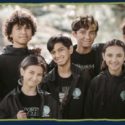Kaimahi from Auckland’s New Settlers Family and Community Trust (NFACT), along with eight young people they’re mentoring, spent a couple of days in Whangārei in February before travelling north to enjoy rich connections with Māori whānau at Waitangi 2024.
NFACT, a long-standing community partner of E Tū Whānau, aims to support people from refugee backgrounds to overcome challenges they face and to settle in Aotearoa New Zealand, including through connecting to each other and to new places.
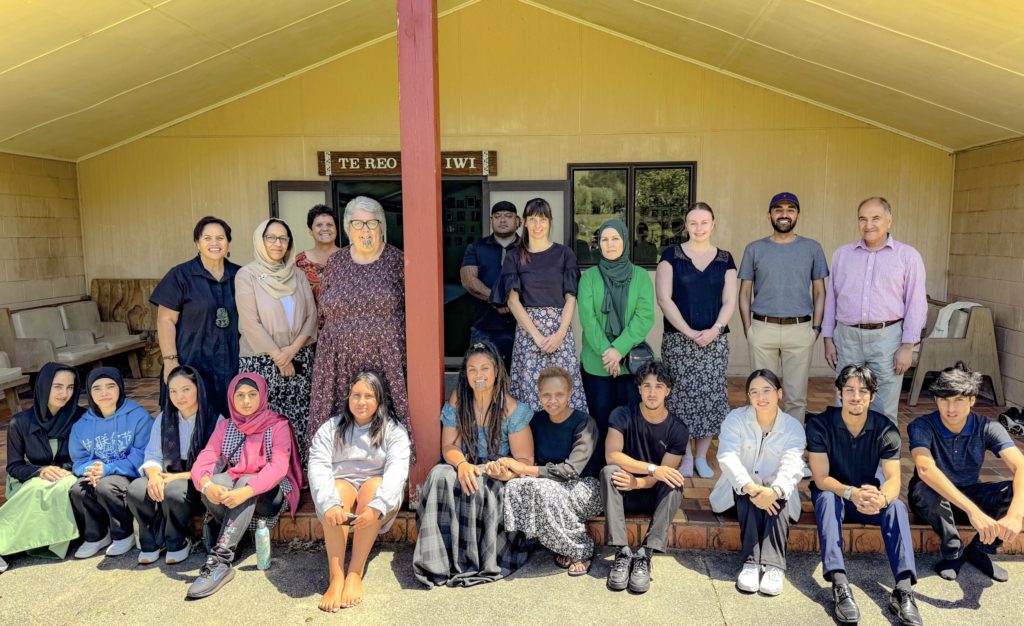
Picture Credit: Marla Brown
Representing diverse African, Asian, and Middle Eastern backgrounds, the NFACT kaimahi and their young Afghan charges stayed first at Pehiāweri Marae in Whangārei where they enjoyed rich connections. They were welcomed by the haukāinga, E Tū Whānau kaimahi, and representatives of Māmā Neke Maunga, also known as Māmā Moving Mountains.
They then took to the water to learn the paddling skills of waka ama. Later, as they travelled to Waitangi, the whanaungatanga continued between the NFACT whānau, and kaimahi from E Tū Whānau and Māmā Neke Maunga.
Building strong, respectful, and well-informed friendships
NFACT CEO Fahima Saeid said everyone in the group was keen to build strong, respectful, and well-informed friendships with Māori people.
“For us, it’s all about making rich connections with the land and the people.”
Fahima Saeid
Some of the young Afghans were new to Aotearoa New Zealand and to the kōrero around the Treaty of Waitangi. They appreciated the freedom to ask questions and to learn about the history of their new home in a welcoming environment.
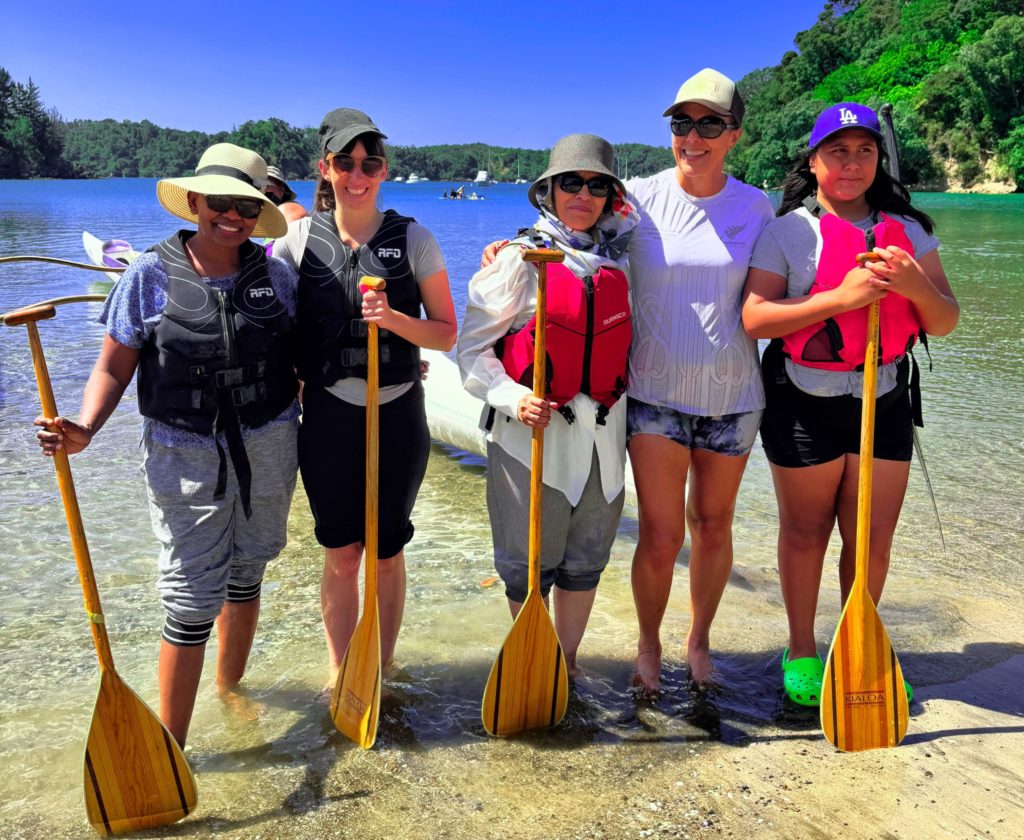
Picture Credit: Marla Brown
Thirsty for knowledge about te ao Maori
“They all understand the important place tangata whenua have in Aotearoa and they want to know more. They’re thirsty for knowledge about te ao Māori.”
Fahima Saeid
The visit built on the success of last year’s groundbreaking wānanga for new migrant mothers and daughters, also run by E Tū Whānau and NFACT.
E Tū Whānau enables rich connections
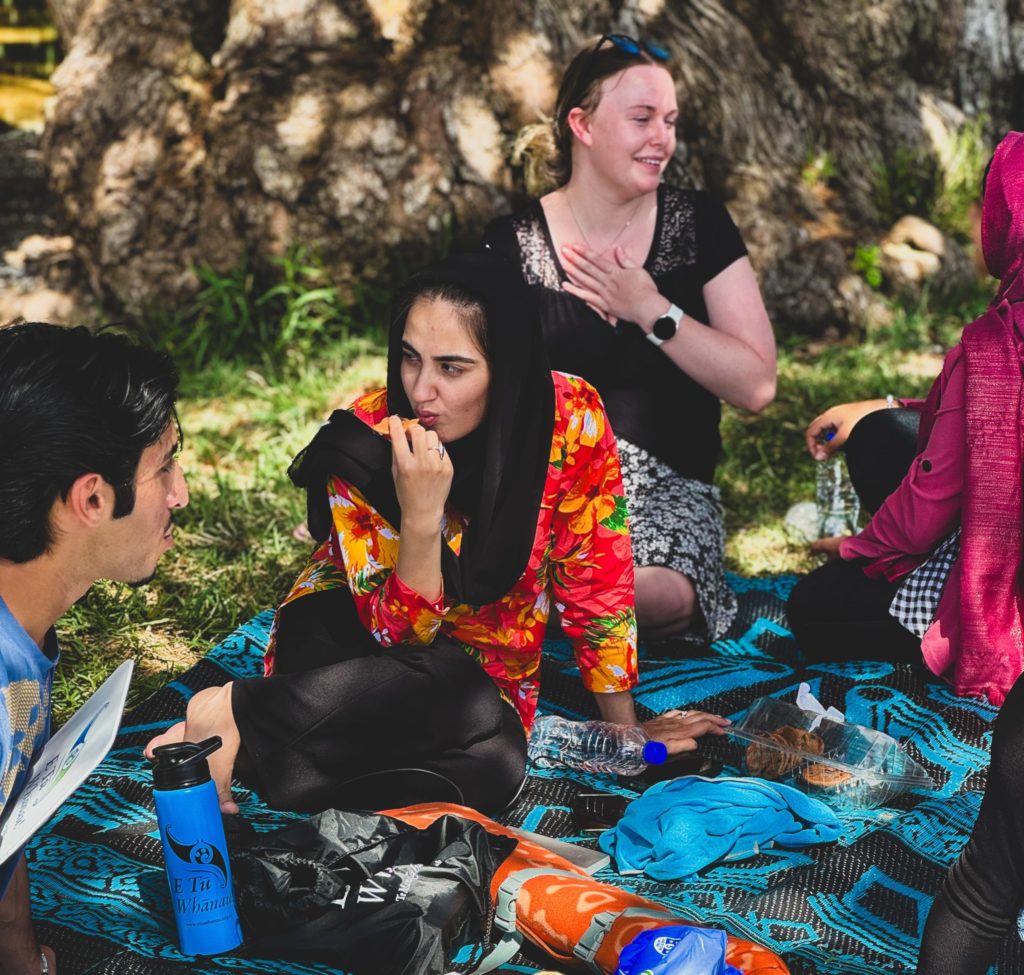
Picture Credit: Marla Brown
E Tū Whānau, says Fahima, is the magic that ‘brings all this together.’
“Without the history of the relationship we have with E Tū Whānau, its kaimahi and its community advocates, this would not be possible.”
Fahima Saeid
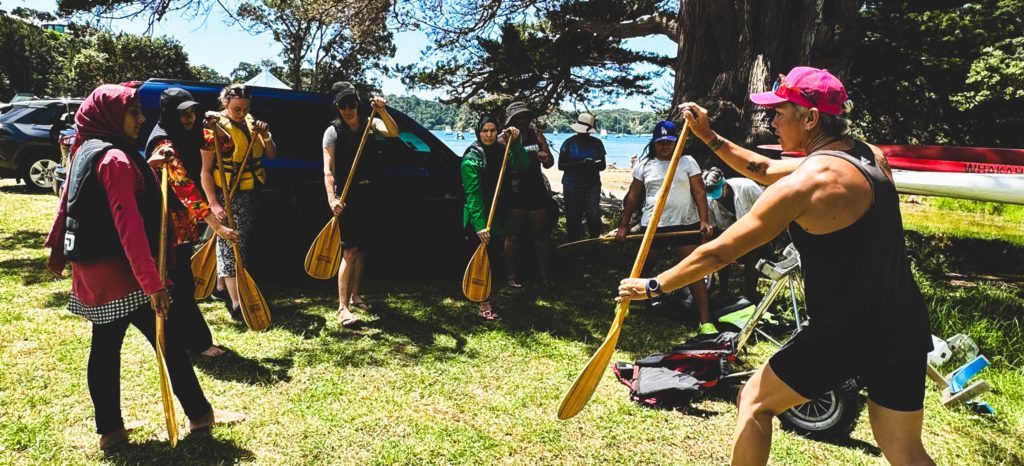
Picture Credit: Marla Brown
Want more?
Read about the connection between former refugees and migrants and E Tū Whānau.
Read how a wellbeing toolbox developed by ALAC is supporting migrants to thrive in Aotearoa New Zealand or how cross-cultural friendship enriches life for rangatahi in Ōtara.

